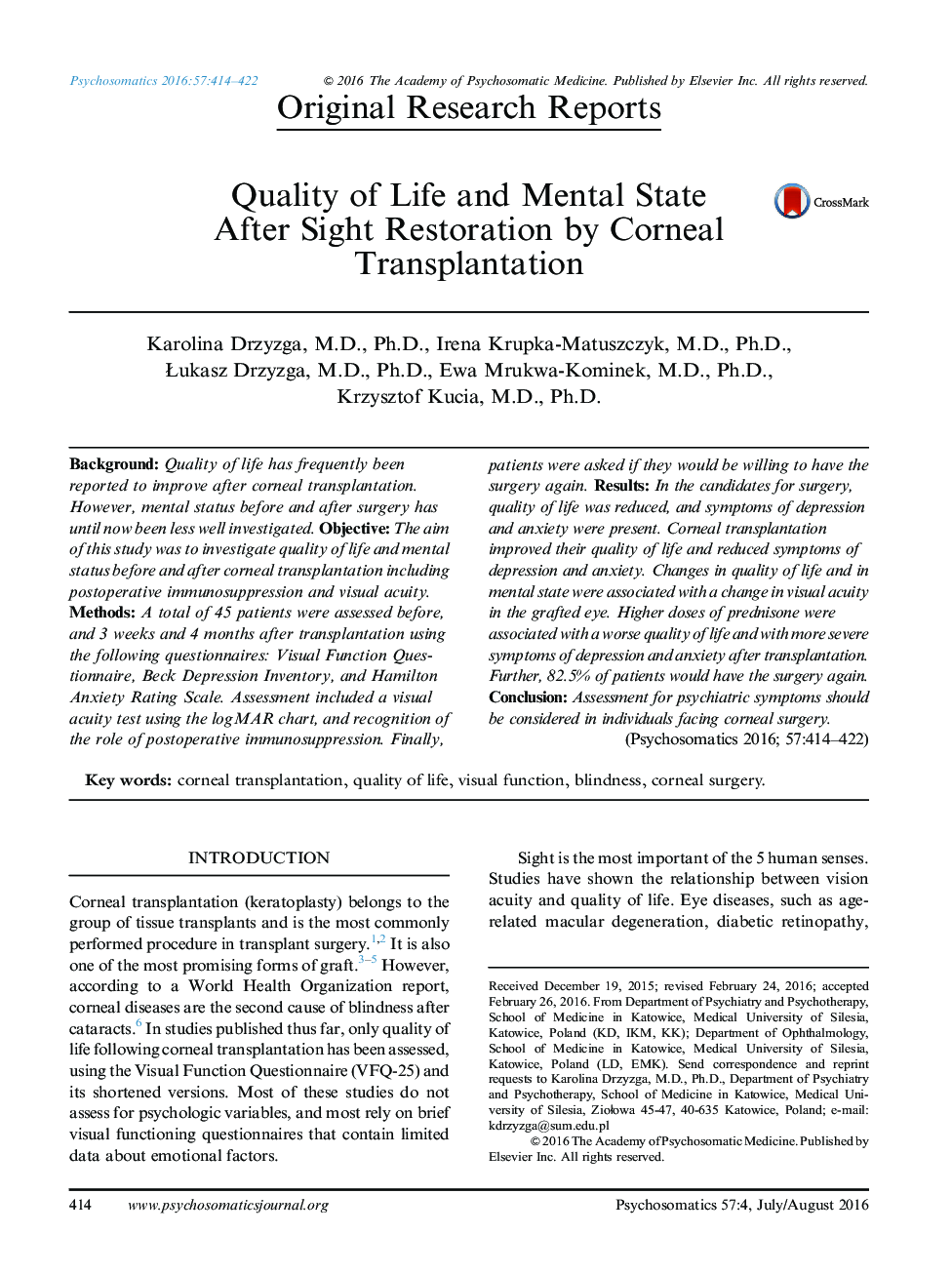| Article ID | Journal | Published Year | Pages | File Type |
|---|---|---|---|---|
| 337326 | Psychosomatics | 2016 | 9 Pages |
BackgroundQuality of life has frequently been reported to improve after corneal transplantation. However, mental status before and after surgery has until now been less well investigated.ObjectiveThe aim of this study was to investigate quality of life and mental status before and after corneal transplantation including postoperative immunosuppression and visual acuity.MethodsA total of 45 patients were assessed before, and 3 weeks and 4 months after transplantation using the following questionnaires: Visual Function Questionnaire, Beck Depression Inventory, and Hamilton Anxiety Rating Scale. Assessment included a visual acuity test using the logMAR chart, and recognition of the role of postoperative immunosuppression. Finally, patients were asked if they would be willing to have the surgery again.ResultsIn the candidates for surgery, quality of life was reduced, and symptoms of depression and anxiety were present. Corneal transplantation improved their quality of life and reduced symptoms of depression and anxiety. Changes in quality of life and in mental state were associated with a change in visual acuity in the grafted eye. Higher doses of prednisone were associated with a worse quality of life and with more severe symptoms of depression and anxiety after transplantation. Further, 82.5% of patients would have the surgery again.ConclusionAssessment for psychiatric symptoms should be considered in individuals facing corneal surgery.
